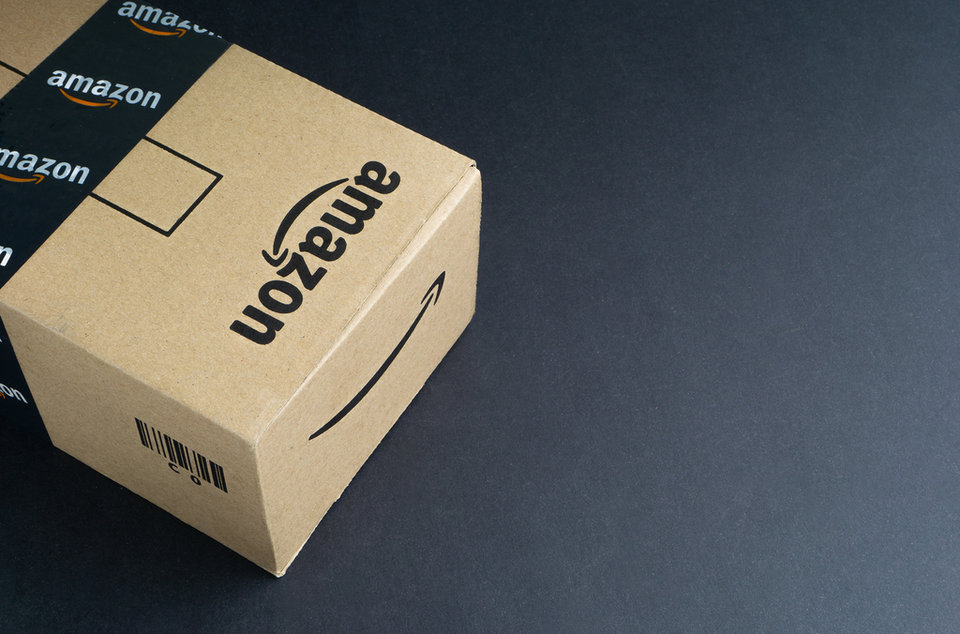Environmental
Are Amazon’s sustainability efforts good enough? - Industry reaction
Earlier this year, Amazon released its sustainability report for 2020. The online giant claimed to be improving its sustainability credentials, although many disagree. Inside Packaging’s Jessica Paige hears from industry experts about what they think of Amazon’s latest environmental claims.

I
n its latest sustainability report, published in June, Amazon detailed its efforts to become a more sustainable company. Among those efforts were a reduction in unnecessary packaging, an improvement in recyclability and the production of biodegradable alternatives.
“Amazon customers want right-sized, recyclable packaging that minimises waste and ensures damage-free delivery,” the report states. “We work to reinvent and simplify our sustainable packaging options using a science-based approach that combines lab testing, machine learning, materials science and manufacturing partnerships to scale sustainable change across the packaging supply chain.
"Amazon plans to be at the heart of change, starting with actions we are taking within our own company, and extending these solutions out to our customers, suppliers, vendors and sellers."
However, several companies and organisations across the packaging industry believe that Amazon still isn’t doing enough to address sustainability challenges. Inside Packaging talked with experts across the industry, from companies to environmental organisations, to find out their thoughts on Amazon’s 2020 sustainability report.

Matt Littlejohn
Matt Littlejohn, senior VP at US-based environmental organisation Oceana, believes the report does not align with Amazon’s top-line performance.
“Unfortunately,” he says, “the company’s claims related to plastic packaging … don’t add up. They offer numbers and anecdotes without context and, most importantly, without a measurable commitment to reducing its plastic footprint and impact on the oceans.
“Oceana’s report in December (2020) revealed that Amazon has a plastic problem. Since then, the company has reported 38% revenue growth [in the 12 months to the end of December] and now has sales that have been estimated to surpass Walmart’s. Amazon is increasingly defining how the goods we buy are packaged.

Amazon has not yet committed to reporting on - or reducing - its plastic footprint.
“The sustainability report reveals Amazon has not yet committed to reporting on - or reducing - its plastic footprint. The report does not offer measurable overall plastic reduction goals or how the initiatives described would meaningfully reduce the huge amount of plastic packaging and waste generated by the company.
“Amazon is a data-driven company. It can and should measure and take steps to reduce its plastic footprint. At its annual meeting in May, 35% of its shareholders voted for the company to do just this.
“Amazon has demonstrated - again and again - the ability to lead, innovate and solve problems (including with its packaging). The company should be a leader in reducing single-use plastic, including offering plastic-free options at checkout to every customer around the world.
“This does not go far enough.”

Claudia Gwinnutt
Claudia Gwinnutt is the founder of Circla, which has a portfolio of hair- and skin-care products sold in refillable packaging. According to Gwinnutt, Amazon still has a long way to go sustainability-wise, to match its size.

“It’s completely unacceptable for any of their packaging to be unrecyclable.”
"Whilst this is a step in the right direction, given the sheer amount of packaging waste that is produced from Amazon, this doesn’t go far enough,” she says. “Given the high volume of orders they send every day, it’s completely unacceptable for any of their packaging to be unrecyclable or for the amount of additional and unnecessary packaging that is still used.
“This should be an absolute given. The commitment they should be making is to transition to reusable packaging options, like Limeloop, Repack or Packoorang."

Paul Strachan
Paul Strachan, the co-founder of “planet-friendly” firewood company Love Logs, has been left similarly underwhelmed.

Wouldn't it be great if Amazon focused on some quick wins and removed all unnecessary single-use plastic packaging?
"As one of the biggest businesses in the world, Amazon has the power to lead the way in sustainability,” he says. “But, like most corporations, they're significantly behind the start-up world when it comes to day-to-day sustainability. For example, while Amazon uses a lot of recyclable cardboard packaging, they also use a huge amount of unnecessary and unrecyclable single-use plastic.
“Large-scale initiatives and long-term planning are, of course, very welcome - but wouldn't it be great if Amazon focused on some quick wins and removed all unnecessary single-use plastic packaging from their business model? What an impact that would have in a short space of time!"

Mahira Kalim
The founder of refillable cleaning products maker Spruce, Mahira Kalim, also believes the behemoth needs to up its game.
"While Amazon has recently cut down its excessive plastic packaging and moved to cardboard and paper-based packaging,” Kalim tells Inside Packaging, “it’s important to realise there’s no quick fix after the damage that the company has single-handedly done.

There is no quick fix after the damage that Amazon has single-handedly done.
“They have shifted consumer expectations to same- or next-day delivery, which in itself cannot be good for the planet. In addition, as sales shifted mostly to e-commerce during the pandemic, the UK faced a massive shortage of cardboard boxes, due to their single-use nature.
“As a company, we strongly believe in intersectional environmentalism,” she continues. “There is no environmental justice without human justice. Reports show Amazon has treated its workers poorly: In order to become a responsible and ethical marketplace, the company must improve working conditions for employees and contractors."

Josh Pitman
At UK-based sustainable packaging company Priory Direct, MD Josh Pitman believes Amazon must look beyond its choice of packaging materials to really make a difference environmentally.
“From a packaging material point of view, Amazon is heading in the right direction with its ‘Frustration Free Packaging’ initiative [targetting 100% recyclability and a reduction in secondary packaging],” Pitman tells Inside Drinks. “But, with Oceana’s research showing Amazon generated 211,000 tonnes of plastic packaging waste in 2019, it’s clear they still have a long way to go.

With only a handful of box sizes used to ship over 350m different items, shipped air is inevitable.
“The sustainability report highlights further developments … but it fails to adequately address the biggest opportunity we see for them to minimise their supply chains’ impact - shipping air.
“When a company ships over 10bn items a year and operates 30-100,000 vehicles and 85 planes to deliver only half of these, shipping air comes at a high cost to the environment. Shipped air means wasted space in delivery vehicles, of which many are involved in every product journey. Multiply this by 10bn, and you have a lot of wasted fossil fuel and energy.
“Amazon has dedicated one paragraph to “using machine learning” to optimise packaging choice in multiple SKU orders. But, machine learning doesn’t change their packaging choices, and with only a handful of box sizes used to ship over 350m different items, shipped air is inevitable.
“We’d like to see Amazon change their environmental headline of a 36% reduction in packaging weight, to a 36% reduction in shipped air through smarter packaging choices. The shipping impact far outweighs the impact of material consumption within their operations.”
Main image credit: Silver Wings SS / Shutterstock.com
